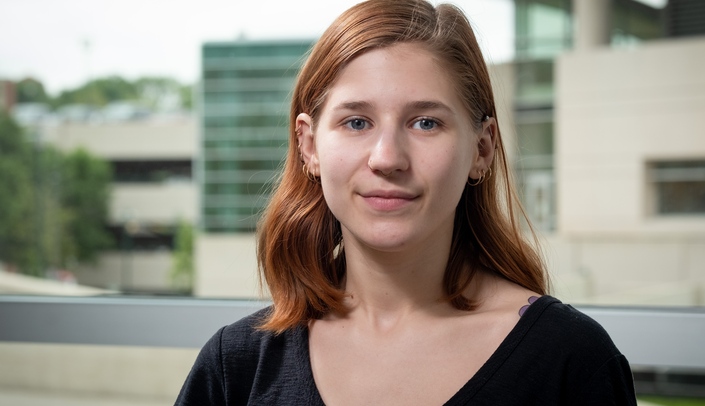On May 28, the Nebraska Institutional Development Award Program (IDeA) Networks of Biomedical Research Excellence (INBRE) program welcomed 29 undergraduate students from across Nebraska as they embark on their summer research experience at Creighton University, the University of Nebraska-Lincoln and the University of Nebraska Medical Center.
The INBRE program is overseen by Paul Sorgen, Ph.D., a professor in the department of biochemistry and molecular biology at UNMC and principal investigator of the $16.2 million National Institutes of Health grant that supports the program.
Established in 2001, the INBRE program was created to expose students to serious biomedical research, build a statewide biomedical research infrastructure between undergraduate and graduate institutions and to strengthen undergraduate institution's infrastructure and increase its capacity to conduct cutting-edge biomedical and behavioral research.
The students, referred to as INBRE scholars, enter the program after completing their sophomore year of college upon recommendation by their college professors. The students receive a two-year scholarship and spend 10 weeks each summer conducting research on either their home campus or at UNMC, the University of Nebraska-Lincoln or Creighton University.
At the end of the summer, the students attend the INBRE annual meeting where they give an oral presentation on their research project.
Below Samantha Ramler, a biotechnology major at the University of Nebraska at Omaha, talks about her INBRE experience.
Tell me about yourself. Who are your heroes?
“I’m not sure if I have any heroes. I look up to all of my various teachers, but I’m not sure I would call them heroes. I do want a Marie Curie quote tattooed on my chest and stomach, so I guess you could say that Marie Curie is my hero.”
What are your career goals?
“I see myself ending up in some position in industry. Truly, all that I’m hoping for from my career is the ability to do science and support myself while doing it.”
How did you become interested in science?
“I became interested in science because my sister was involved in science and I always wanted to one up her. Now, my sister is going off to an MD/PhD program and I’m perfectly content and excited to be studying viruses and working towards acceptance into a PhD program.”
What do you hope the INBRE program will do for you?
“I hope that the INBRE program will help me get into graduate school. I see graduate school as a gateway to creating or obtaining my ideal career.”
How do you see science evolving over the next 20 years?
“I see science evolving to become more reliant on technology, which terrifies me because I think of myself as inept at anything that involves a computer. That being said, I see the technology as a tool that can and will help bring science to a whole new level of accomplishment in terms of general discoveries and practical uses.”
We are Nebraska Medicine and UNMC. Our mission is to lead the world in transforming lives to create a healthy future for all individuals and communities through premier educational programs, innovative research and extraordinary patient care.
Twitter | Facebook | Instagram | YouTube | Flickr
